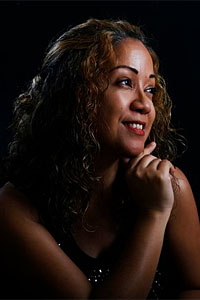Type police brutality in Google and most likely you will find trending news headlines such as: "Why George Floyd Won't Be Last American Killed By Police''.
Floyd, a 46-year-old African-American man, died a slow and painful death late last month in police custody. His death occurred after Derek Chauvin, a white Minneapolis police officer, placed his knee on Floyd's neck after handcuffing and pinning him to the ground.
The victim was taken into custody due to allegations that he had used a counterfeit US$20 (630 baht) bill to purchase a pack of cigarettes.
The utterly despicable, racially instigated violence meted out against Floyd was captured on multiple mobile phones and shared widely on social media, triggering massive protests, rioting and looting in the US.
Autopsies on Floyd show that his death was a homicide. All four officers have since then been fired. Moreover, Chauvin has also been charged with second-degree murder, while the three other officers at the scene have been indicted for aiding and abetting second-degree murder, according to the Star Tribune.
There has also been global condemnation over the incident, especially in countries where minorities have faced racial profiling, prompting national debates about how to reduce police violence.
The form of police brutality in Floyd's case raises a number of deep-seated concerns; two that come to mind include abuse of power by law enforcement and racial profiling.
Can the general Thai public relate to both? In my opinion, I believe we can. Even though racial profiling is often very subtly implied, it is still practised without many batting an eye.
One does not need to be a rocket scientist to realise that Thais are extremely colour conscious. Coming from a mixed-race background myself, I can relate to this.
How much of this mindset carries over into racial profiling by the Thai police is anyone's guess.
For me, the most disturbing aspect is probably the arbitrary racially motivated arrests of Africans -- who are not all scammers or involved in illegal dealings -- that are specifically singled out.
It is interesting to observe that people of African origin are one of the most under-represented and unreported on in Thailand. If they do appear on Thai media, it is mostly as either a butt of a joke or about their arrests by Thai immigration for overstaying their visa or scamming offences.
Three years ago, Operation Black Eagle was initiated on the orders of junta leader Prayut Chan-o-cha to clamp down on African migrants committing crimes in Thailand.
Interestingly, the leader of one such police raid, where over 80 foreigners were detained, described the operation as specifically targeting "black people".
If this is not racial profiling, what is?
We need to collectively address this issue as a society by beginning to look beyond a person's complexion. This can only be accomplished when people are able to get over beliefs perpetuated by Thai society that teach black is dirty and thus must be inferior.
When it comes to abuse of power or corruption by Thai law enforcement, it is an open secret that it is widely practised and that incidents are not properly investigated until it receives media attention.
Even Wikipedia describes "corruption" as being rampant in Thailand and ranging from bribery to outright police collusion.
The culture of abuse of power in the Thai police force is complex and steeped in the patronage system within and beyond the force.
Among a string of cases that best highlight blatant criminal acts by the force has been recent coverage of incidents of police extortion rackets in May.
It showcased an allegedly brazen act of assault and extortion by a suspected gang of criminals in police uniforms.
The immense media coverage for this case even drew the attention of top police chief Pol Gen Chakthip, who took it upon himself to pay a surprise visit to the Samut Prakan station, following up on a complaint that accused six policemen attached to Klong Dan and Bang Phli police stations of assaulting, torturing and extracting money from 16 victims in exchange for not filing drug charges against them. Among the victims were a couple with a young child.
The three families that were victims of this extortion racket all faced physical and emotional abuse as they were assaulted, coerced, kidnapped and threatened into submission multiple times until the police officers were able to get a huge ransom payment from each party to earn their freedom.
News reports on the case, which is currently under investigation, gives us good reason to believe the six policemen indicted for these offences committed the crimes.
Moreover, when and if successfully found guilty, the officers will face criminal charges that include extortion, forcible detention and assault.
To get a broader perspective on police accountability, one has to see what the United Nations Office on Drugs and Crime (UNODC) says about what makes for an effective police accountability system.
The UNODC handbook lists 17 elements from which I picked the following to best reflect what Thailand should focus on.
 A working culture that promotes transparency and evaluation.
 Proper complaint-filing procedures, both for making complaints to the police directly and to independent bodies.
 Fair and effective procedures and policies on how to deal with misconduct, including disciplinary and criminal codes, adequate investigative capacity, procedures for punishment and appeal procedures.
 An independent body to oversee such procedures.
 Scrutiny and oversight that provides feedback to the police in order to improve future activities and prevent future wrongdoings.
 Evaluation and complaint procedures that contribute to the development of new policies, procedures and instructions.
Before these recommendations can be set in motion, it is my opinion that the Thai government has to sincerely address police reform, which continues to receive little to no attention from the politicians we voted into office!
Yvonne Bohwongprasert is a feature writer with Life section for the Bangkok Post.
